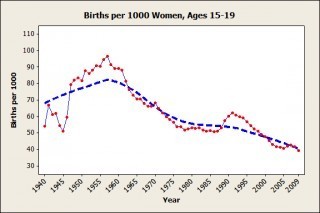Michael Flynn's Blog, page 59
January 5, 2011
Detroit, We Hardly Knew Ye

The ruined Spanish-Gothic interior of the United Artists Theater in Detroit.
The cinema was built in 1928 by C Howard Crane, and finally closed in 1974
Detroit in Ruins is a photo series of once-important buildings in a once-important city. Click the link for more. Philadelphia, Atlanta, Newark, Chicago, Boston, Baltimore, Pittsburgh... (And London, Paris,...) They aren't like this. Not yet.
More than any other city, Detroit has imploded and collapsed. It was once the heart of urban, blue-collar America, back when "urban" and "urbane" were cognate. Rome must have looked like this, after the Vandals came through.
Perhaps the saddest picture of all is the East Side Library.

January 3, 2011
Sometimes You Don't Have the Words
January 2, 2011
The Writing Life
In any case, here are the opening paragraphs:
Buried Hopes
by Michael F. Flynn
(c) 2011
Ethan and Kyle met in college and became from the start fast friends. In part, this was literal, for they were both trackmen of no mean speed, each having set a State record back in their respective high schools – Kyle in the 100 meter dash and Ethan in the 5000 meter run. Kyle used to joke that he could win fifty races to every one of Ethan’s, and Ethan would counter that Kyle was always rushing into things.
They both liked to hoist a cold one at the Avalanche after school. They both enjoyed the threedies, crude as they were in those days. They had the same taste in women, which led to their one serious quarrel in college.
They differed on any number of topics – in three of four sports, they rooted for different teams – but they did not insist on mutual agreement on all matters. If a friendship cannot withstand a difference of opinion, it is not a friendship at all. Kyle majored in computer science, which is the 100 meter dash of contemporary technology, while Ethan majored in philosophy, surely a marathon among human endeavors. Kyle used to twig Ethan about entering a field of no practical use, but Ethan told him that while good computer science might stop our machines from making mistakes, good philosophy might stop people from making them, and he thought that might matter.
Then came graduation, and they went their separate ways – Ethan to graduate school and Kyle to his parents’ garage, where he set up a software company. They promised to stay in touch, and mostly did.
Later, one of them decided to live forever.
+ + +
Happy 1/1/11
It's Always in the Last Place You Look
"Aeroflot Flight Evacuated in Berlin; Police Say No Bomb Found"--headline, Bloomberg, Dec. 6"No Bomb Found at German Embassy in Kyrgyzstan"--headline, Itar-Tass (Russia), Dec. 8"No Bomb, Just a Threat at Convenience Store"--headline, Keizer (Ore.) Times, Dec. 11"No Bomb Found in Slovak Radio Building"--headline, The Slovak Spectator website, Dec. 21"No Bomb in Armenian Embassy in Rome"--headline, News.am (Yerevan), Dec. 23"Package Bomb Found at Greek Embassy in Italy"--headline, Associated Press, Dec. 27h/t Wall St. JournalDecember 28, 2010
Frequency of words
An alert reader at First Things magazine did a Google search on the frequency with which two words appeared in books in various periods: "virtue" and "sex". While the decline of one and the increase of the others is no surprise -- we'll leave it as a surprise to guess which declined and which increased -- it was startling to see how quickly they flipped.

December 23, 2010
Putting on my Stats
Expectations high for panel targeting teen pregnancy ;
Critics fear emphasis on condoms
Byline: Cheryl Wetzstein; The Washington Times
Leaders of a new national campaign against teen pregnancy say they plan to reduce the teen-pregnancy rate by one-third by 2005, although they're not sure how.
Well, they are never quite sure how; but intentions are all that matter. It's all about feeling good about yourself.
And just in time, too:
US teen birth rate at all-time low, economy cited
-- headline, Lehigh Valley Express-Times (et al.)
Okay. I know pregnancy rate > birth rate. The difference is largely in the abortion rate, though there are also miscarriages and things of that sort. Even so, the target of my wrath is this tidbit:
The U.S. teen birth rate in 2009 fell to its lowest point in almost 70 years of record-keeping — a decline that stunned experts who believe it's partly due to the recession.
Due to the recession? Due to the recession?? The recession!!!? A wet towel, please, until the anguish passes.
Don't these people look at the data? The article in the local paper included a graph and reprinted the wire story as if the graph did not exist. I was unable to find the graph in on-line versions of the story in the Express-Times, the Washington Post, and a couple other spot checks; so I recreated it myself from the Statistical Abstracts of the United States. There is this caveat: the birth rates for any given year sometimes change in the tables from later years. I did not have time to resolve that point and in most of the cases I glanced at, the adjustment was not very large.
OK. Here it is:

The trend line is a 50% Lowess smoother, with 2 iterations to de-emphasize outliers.
Evidently, the experts were stunned because they had not been looking at the freaking data!!!
The tremendous drop that stunned them is the drop from the penultimate point in the graph to the ultimate point in the graph; one so minuscule as to be near invisible. This is the speck in the eye of the PR release and wire service reporter. The beam, of course, is that the birth rate has been decreasing very nearly monotonically since the grand maximum back in the halcyon innocent days of Beaver Cleaver and his evidently round-heeled sister back in the 1950s.
IOW, the answer to the question why 2009 was the lowest teen birth rate on record is.... (drum roll) ...because the birth rates have been getting steadily lower (more or less) since 1961 and this is simply the latest point in that ongoing trend.
The recession?!!! (Excuse me. Wet towel, please. Whap! Thanks, I needed that.) Basic rule in quality engineering: a recession that began a couple years ago cannot explain a trend that began half a freaking century ago. That's like claiming the growth of women in the labor force was due to the Women's Lib movement; or that the increase in foreign auto sales in the 70s-90s was due to the Arab Oil Embargo. Effects do not precede their causes.
Any quality engineer worth his pittance would tell you that what actually needs explaining is not the trivial variation from 2008 to 2009, butthe steady decrease since 1962, andthe "hump" in the 1990s.
And don't suppose it's necessarily the first thing to pop into your head. Like the fact that the age of consent was lower back then. There is still the 1940s back there, and that can't be entirely due to the 18-19 year old men being off to war. Do not neglect to consider the quality of the data itself: were all states reporting? Were the figures adjusted consistently? How was a "live birth" defined? A chart of the moving range shows erratic year-to-year swings at the beginning, but settling down to a very consistent first difference after about 1970. Range problems are often due to measurement system problems.
But trust me. It's ain't the recession.
December 20, 2010
Sauce for the Gander
Irony Award for 2010
"Lawyers for Julian Assange have expressed anger about an alleged smear campaign against the Australian WikiLeaks founder," the Australian reports:
In a move that surprised many of Mr Assange's closest supporters on Saturday, The Guardian newspaper published previously unseen police documents that accused Mr Assange in graphic detail of sexually assaulting two Swedish women. One witness is said to have stated: "Not only had it been the world's worst screw, it had also been violent."
Bjorn Hurtig, Mr Assange's Swedish lawyer, said he would lodge a formal complaint to the authorities and ask them to investigate how such sensitive police material leaked into the public domain. "It is with great concern that I hear about this because it puts Julian and his defence in a bad position," he told a colleague.
"I do not like the idea that Julian may be forced into a trial in the media. And I feel especially concerned that he will be presented with the evidence in his own language for the first time when reading the newspaper. I do not know who has given these documents to the media, but the purpose can only be one thing--trying to make Julian look bad."
December 18, 2010
Thought for the Day
John Lukacs wrote in The Passing of the Modern Age (1970):
Except for two republics [France and Switzerland] as late as 1910 every European state was still a monarchy, but the actual political power of the monarchs was dwindling everywhere....
Of course it is very often true that officials of a central government, sitting in their capital, gravely and injudiciously interfere with the lives and property of citizens in distant provinces or towns, without having consulted them at all, and without either considering or understanding their particular problems. But there is no longer any guarantee (if there ever was) that people elected or appointed locally will be more capable or even more considerate...
Why is the election of supervisors of townships, or mayors of small towns, an even less inspiring exercise of one's civic duties than the election of a governor or a president? Is it because people feel... that these locally elected men have little power? Not necessarily: the budgets that local governments and school boards handle nowadays are enormous, their powers of regulating properties are very large indeed. The answer, I submit, is to be found elsewhere. People have become distrustful of the kind of men and women who are interested in holding this kind of power at all.
In the long run the rule of aristocracy has been succeeded not by the rule of democracy but by the rule of bureaucracy. Let us examine this pallid aphorism a little more closely. If one does not like aristocracy one is, most probably, a democrat by preference; or the other way around. But one's exasperation with bureaucracy is a different matter: it is at the same time more superficial and more profound than our dislike for either form of government. The democratic exercise of periodic elections does not compensate people sufficiently against their deep-seated knowledge that they are being ruled by hundreds of thousands of bureaucrats, in every level of government, in every institution, on every level of life.
These bureaucrats are not the trainees of a rigid state apparatus, or of capitalist institutions, as their caricatures during the nineteenth century showed them. They are the interchangeable, suburban men and women of the forever present, willing employees of the monster Progress
December 16, 2010
Party Hearty
 Yesterday, wended to the wilds of Manhattan, where Margie and I had lunch at Rolf's German Restaurant, with its tastefully understated decorations (see left). We were hosted by my esteemed editor, David Hartwell of Tor. I had Jäger Schnitzl mit Spätzl with creamed herring for appetizer. I asked if anyone wanted to help me eat the fish, but I had no herring aid.
Yesterday, wended to the wilds of Manhattan, where Margie and I had lunch at Rolf's German Restaurant, with its tastefully understated decorations (see left). We were hosted by my esteemed editor, David Hartwell of Tor. I had Jäger Schnitzl mit Spätzl with creamed herring for appetizer. I asked if anyone wanted to help me eat the fish, but I had no herring aid. David indicated that he had finished reading In the Lion's Mouth and in his opinion, it was "magnificent."
Now I am not one to disagree, but I thought it was crap. Of course, that's what I always think when I have gotten to the end of a book. All of its flaws are so glaring! But there you have it. He said he especially liked the linkage to Huizinga's book, which he had sensed in the Shadow culture even before he got to my acknowledgments. How did he finish it so quickly, I asked. He said he couldn't stop reading it.
Now I am stuck with how to title the two books. One part will be In the Lion's Mouth. I am leaning toward Bride of the Lion's Mouth or perhaps Abbot and Costello Meet the Lion's Mouth for the other. Another possibility is In the Lion's Mouth: Ravn Olafsdottrs Saga and In the Lion's Mouth: Donovan buighs Saga. Still another possibility is to call the second book A Gathering of Shadows or perhaps The Shadow War.
There will also be the problem of introducing material from the first half of the book into the second half so that it can be read alone.
We talked a little bit about potential new books, maybe giving the harper and the scarred man a rest.
+ + +
Afterward we went back to the Tor offices to say hello to Tom Doherty. He wasn't back yet, so while waiting I read in the new biography of Heinlein. What I read was an appendix regarding Heinlein family genealogy. And it said that some of the Heinleins had in pre-revolutionary days gone from Philadelphia (where they had first settled) to Northampton County, PA. Hey, I thought. That's where I live. Then it mentioned that one of the brothers changed the spelling of his name to Hineline.
When I was a kid there was a big white ramshackle building at the end of the block, separated from our house by a weed-grown field where a greenhouse used to be. The big building was an apartment building that seemed to have grown from at least two separate buildings that had fused. Anyway, it was called the Hineline Apartments. A curious and curiously distant connection.
+ + +
Then we drove uptown to Spectrum for the Christmas party. Margie wanted to allow plenty of time for traffic; so naturally the West Side Highway was empty of cars and we made the trip in six minutes.
The party was partyish. Stan Schmidt of Analog and Sheila Williams of Asimovs were there. So was Tom Doherty, and a bunch of others from Tor. Betsy Mitchell. Names that now escape by colander-like mind. Stan Schmidt was wearing a plaid shirt almost identical to David Hartwell's trousers and I awaited David's arrival with great anticipation. Alas, he had not shown by the time Stan had to leave. Some last-minute noshing and Margie and I also took our departure, inasmuch as we had a ways to go. Now, 70 miles was not what we called a long drive when we lived in Colorado, but everyone in the east seems to think it is. My technique is to go to sleep when starting out and waking up when we arrive. Fortunately, Margie was driving.
Then You Saw it, Now You Don't
Kirkus Reviews has revealed the Best SF of 2010. I am sure that all the books they list are very good, but I was interested to note the virtual absence of SF from the list. As near as I can tell only two of the fifteen books are SFnal, and there is something very borderline about the last one.
How much of this is due to the collapse of the Modern Ages? Recall that the modern ages were bourgeois, industrial, and scientific, and it is no surprise that a type of fiction developed that featured imaginable technological innovation as a key background element. In early genre fiction, it even comprised the foreground!
But with the post-modern shift of emphasis
from matter to form,from logos to icon,from reading to seeingand the demonizing of science and technology as patriarchal, polluting, and oppressive, the future is less clear. In my own youth, children played with chemistry sets, electric workbenches; we built things with erector sets and set up telescopes in the back yard. There had been, just a little earlier, no embarrassment in reading magazines with titles like Astounding! Amazing! Galaxy! or Thrilling Wonder! But we are now well into a time when the youth is more likely to say "Whatever..." than "Amazing!"
It was around the 1950s, historian John Lukacs noted in Outgrowing Democracy, that the circulation of Psychology Today exceeded that of Popular Mechanics, something that would have astounded(!) folks from the early 1900s. Thereafter, the psychology of a story became steadily more important than the mechanics or gadgets. That's certainly not all bad. Stories are better written -- but the speculative science or technology has dimmed. Partly that is because newer writers don't know enough about science to write well about it. Hence, more and more fantasy. Fewer writers are physicists or chemists and more are lit-majors and critics. The form of writing has improved even as the matter has not.
This is in line with that other change of the 1950s: the replacement of "I think that...." with "I feel that...."
Michael Flynn's Blog
- Michael Flynn's profile
- 237 followers




